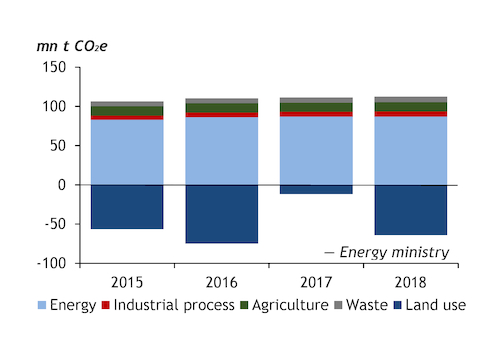Chile's government is making local development an important aspect of its energy transition agenda, write Jacqueline Echevarria and Florence Schmit
Chile has deepened its already ambitious renewable energy and emissions plans, despite initial setbacks for the new government's climate agenda.
Voters rejected a new constitution backed by parties in President Gabriel Boric's left-wing government in September that included a heavy emphasis on climate action and environmental protection. The government reacted by shifting to a more centre-left agenda, insisting that it wants to bring in private-sector investment to meet its goals. And it took the opportunity at the Cop 27 UN climate conference in Egypt this week to sign loan deals with the InterAmerican Development Bank (IDB) and the World Bank to boost green hydrogen development.
The first agreement between economic development agency Corfo and the IDB will provide a "results-based" investment loan of up to $400mn, aimed at broadly supporting the development of Chile's green hydrogen industry, including developing local workforce capabilities and supporting the development of regions where green hydrogen projects are established.
The World Bank deal will give access to a $150mn loan in a first stage in 2023 and a further $200mn later on, also to support green hydrogen projects.
"Chile has unique renewable resources and I believe we can have Chile fully [energy] independent by 2040," the World Bank's global director for energy and extractive industries, Demetrios Papathanasiou, says.
Chile launched a national green hydrogen strategy in 2020, setting out plans to become one of the world's top three exporters by 2040. Chile has a pipeline of more than 80 green hydrogen projects, 15 of which now have confirmed start-up dates, according to the energy ministry.
The local development aspect of the loan deals is particularly important, Chilean energy minister Diego Pardow notes. "Our hydrogen strategy has been very successful to get the attention of the financial sectors and the international agencies, but we have not been as successful in bringing the local communities on board," Pardow says. "We are working on designing policies that are able to signal which kind of jobs we are going to create [and] which kind of small and medium-sized businesses will participate in the supply chain."
The life aquatic
Chile has also updated its emissions pledges under its nationally determined contribution (NDC) at Cop 27, making it clear that it will trim rising methane emissions and expand land protections. The new NDC vows to reverse a growing trend of methane gas emissions by 2025 and expand by at least 1mn hectares the land and aquatic ecosystems under protection by 2030.
The strengthened NDC contains Chile's updated climate policies, including the obligations imposed by the country's climate change law, which came into force in June, and its long-term climate strategy that extends to 2050.
Chile was the second country worldwide to present its fifth biannual update on greenhouse gas (GHG) emissions, its environment ministry says. Its GHG emissions fell by 4pc in 2020 to 105.5mn t CO2 equivalent (CO2e), excluding carbon offsets, compared with 2018. When the absorption of gases by forests is considered, 2020 GHG emissions totalled 55.8mn t CO2e.
The Covid-19 pandemic — which reduced land and air transport emissions owing to lockdowns — and higher generation from renewable sources were behind the improvement. Three-quarters of emissions were produced by the energy sector, followed by agriculture (11pc), waste (7pc) and industrial processes and product use (7pc). CO2 represents 76pc of emissions, followed by methane with 14pc and nitrous oxides with 6pc.



